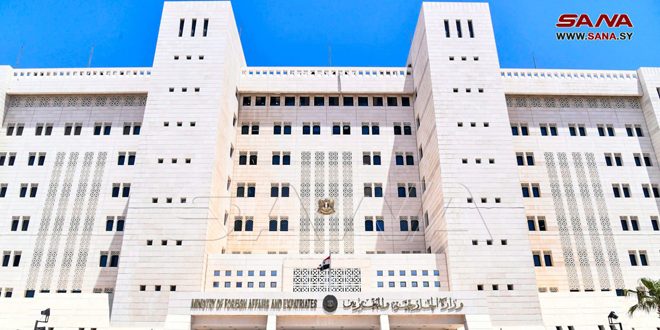Syria condemns continued cutting off drinking water by Turkish and US occupations to citizens in Hasakah
Damascus, (ST) – Syria has condemned in the strongest terms cutting off drinking water to the citizens in the city of Hasakah and its surroundings, as well as the population centers that extend along the water pipeline from Alouk station to part of the eastern countryside of Hasakah.
The Ministry of Foreign Affairs and Expatriates said in a statement on Wednesday that Syria condemns in the strongest terms the continued deprivation of more than a million Syrians in Hasakah province from water. The ministry added that this criminal practice constitutes a war crime, a crime against humanity and a serious threat to public health, especially in the light of the region recording an unprecedented rise in temperature which means that water is being used as a weapon and a tool to achieve political goals.
The Foreign Ministry added: The people in the city of Hasakah and its surroundings are still stuck between the Turkish occupation and its mercenaries of terrorist gangs and the American occupation and its tools in the separatist militias, who continue to cut off drinking water supplies to the people in the city and its surroundings and in the population centers along the water pipeline that extends from Alouk station to part of the eastern countryside of Hasakah.
The Foreign Ministry continued: Syria calls on the United Nations to take immediate and effective action to stop this gross violation of international law and all international coventions and norms, and to ensure the resumption of water pumping from the station at full speed, and to enable the technical teams of the Drinking Water Establishment and the international organizations to reach the station, so as to supervise its work and operation with yhe aim of ensuring that the people of Hasakah have access to potable water.
Syria reaffirmed that ending the illegal presence of the American and Turkish forces on Syrian territory, re-establishing the state’s authority and resuming the work of its institutions in the country’s north, northeast and northwest, is the only way to end the suffering of our people there, restore stability to the region and improve the humanitarian and living conditions there.
Raghda Sawas

